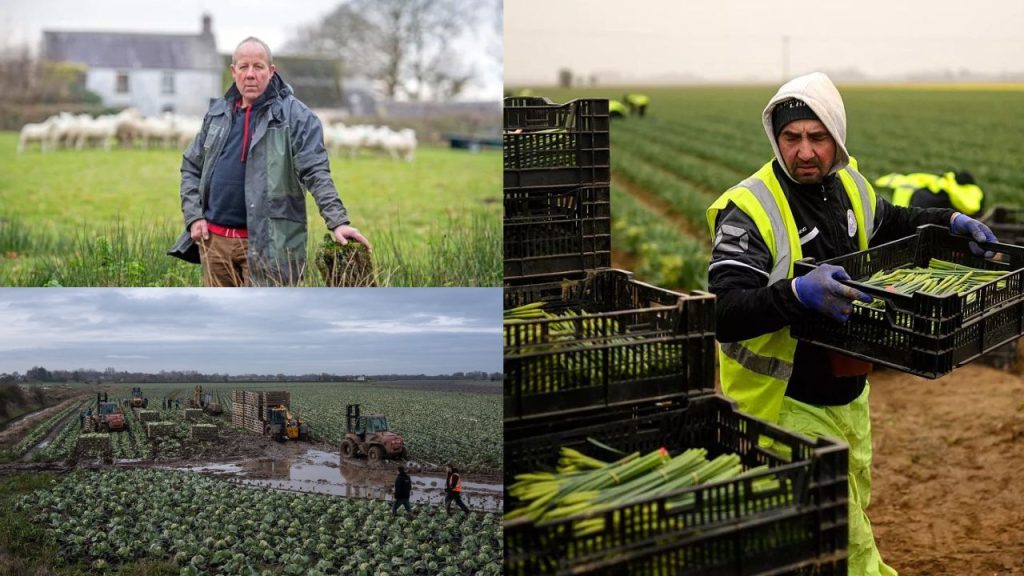A New Era for British Farming
Brexit has ushered in a new era for English agriculture, bringing both opportunities and challenges. The UK’s departure from the European Union (EU) has fundamentally altered the landscape of farming in England, affecting everything from trade and subsidies to labour and regulations. While some farmers see Brexit as a chance to redefine British agriculture, others are grappling with the uncertainties that come with this historic shift.
Changes in Agricultural Subsidies
One of the most significant impacts of Brexit on English agriculture is the change in agricultural subsidies. Under the EU’s Common Agricultural Policy (CAP), English farmers received substantial financial support based on the amount of land they farmed. With Brexit, the UK government has introduced the Environmental Land Management Scheme (ELMS), which shifts the focus from land-based payments to environmental stewardship.
ELMS aims to reward farmers for delivering public goods such as biodiversity, water quality, and carbon sequestration. While this shift towards sustainability is welcomed by many, the transition has raised concerns among farmers who rely heavily on subsidies for their income. The new scheme requires significant adjustments, and there is uncertainty about the level of financial support available during the transition period.
Brexit’s Impact on English Agriculture

Trade Barriers and Export Challenges
Brexit has also had a profound impact on trade, particularly for English farmers who export to the EU. The introduction of customs checks, tariffs, and regulatory differences has made it more challenging to trade with EU countries. For example, the export of perishable goods like fresh produce and meat has been hampered by delays at the border, resulting in increased costs and reduced competitiveness.
Additionally, the UK’s decision to diverge from EU regulations has created uncertainty for exporters. Farmers must now navigate a complex web of rules and standards, both in the UK and the EU, which can lead to added costs and logistical challenges. For some, this has meant losing access to key markets or facing reduced demand for their products.
Labour Shortages in the Agricultural Sector
The agricultural sector in England has long relied on seasonal labour, much of which came from EU countries. Brexit has led to a significant reduction in the availability of migrant workers, creating labour shortages during critical periods such as harvesting. This has forced some farmers to leave crops unharvested, leading to financial losses and food waste.
The UK government’s introduction of the Seasonal Workers Pilot Scheme, which allows for a limited number of non-EU workers to fill labour gaps, has provided some relief. However, the scheme’s limited scope and the ongoing uncertainties around immigration policy mean that labour shortages remain a pressing concern for English farmers.
Regulatory Divergence and Environmental Standards
Brexit has given the UK the freedom to set its own agricultural policies and regulations, which could lead to divergence from EU standards. While this offers opportunities for innovation and tailored solutions, it also raises concerns about maintaining high environmental and food safety standards. English farmers must now adapt to new regulatory frameworks, which could involve changes in pesticide use, animal welfare standards, and environmental protections.
The potential for regulatory divergence has also sparked debates about the future of food imports. Trade deals with non-EU countries could open the door to imports produced to lower standards, potentially undercutting English farmers and affecting consumer confidence in British produce.
Opportunities for Innovation and Local Markets
Despite the challenges, Brexit has also created opportunities for English agriculture. The shift away from EU regulations allows for greater flexibility in developing policies that meet the specific needs of British farmers. There is potential for innovation in areas such as agri-tech, sustainability, and local food production.
Brexit has also renewed interest in supporting local markets and reducing reliance on imports. English farmers are increasingly exploring direct-to-consumer sales, local supply chains, and value-added products as ways to build resilience and capture new market opportunities.
Conclusion: Navigating the Post-Brexit Landscape
Brexit has brought significant changes to English agriculture, with both challenges and opportunities emerging in the wake of the UK’s departure from the EU. The shift in subsidies, trade barriers, labour shortages, and regulatory changes are reshaping the industry. However, English farmers are resilient and adaptive, and there is potential for innovation and growth in this new landscape. As the sector navigates these changes, the future of English agriculture will depend on how well it can balance the demands of sustainability, competitiveness, and food security in a post-Brexit world.
